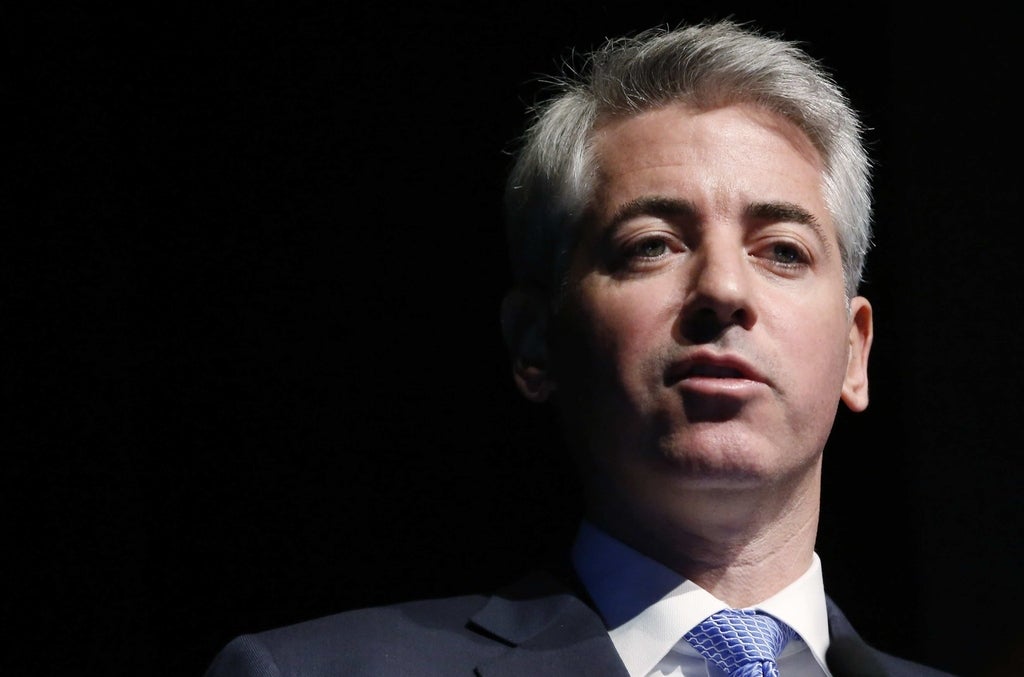

Ralph Nader, the 70 year old consumer activist, was sounding like an activist hedge fund manager. He was railing against a company's management, which he called a "dictatorship," explaining that "shareholders were stripped of their rights, his "longstanding support of shareholders rights and that he wants "to get shareholders to come forward" to join his crusade on their behalf.
He wasn't talking about Apple or Sotheby's, but was actually referring to Fannie Mae and Freddie Mac, of which he owns a combined $160,000 worth of common stock.
Nader's latest cause is protecting the common shareholders of the two mortgage companies who are worried that they will never get a piece of their new and huge profits. "If you're going to bail out a company like that, you shouldn't treat Fannie and Freddie's shareholders differently," he told reporters, "they should be given a chance to share in the recovery of these institution."
The shareholders' dispute with the government includes including hedge funds like Bill Ackman's Pershing Square, Perry Capital, BlackRock, and the mutual fund Fairholme. It stems from the government's takeover of the two companies in 2008 as they faced mounting losses from the collapse of the housing bubble that threatened to put their highly leveraged businesses underwater.
The Treasury pumped $188 billion into the two companies after it placed it into "conservatorship." The companies help support the housing market by acquiring residential mortgages that meet certain criteria and then issuing bonds backed by those mortgages. One condition of the bailout was the government taking 10% of the two firms profits in a dividend attached to its "senior preferred stock" and that its newly formed regulator, the Federal Housing Finance Agency, be responsible for much of the companies' management.
Their common stock even got taken off the New York Stock Exchange and now trades over the counter like a penny stock. Nader said the delisting was "voluntary and premature," and was a "predatory confiscation of value."
In August of last year, as Fannie and Freddie started to look more profitable, the government amended that agreement to sweep away all the profits but not actually reduce the government's ownership stake. The government also owns warrants that give them a right to buy 79.9% of Fannie and Freddie's common stock.
But Fannie and Freddie are now turning massive profits, earning $118 billion so far this year and paying the government a cumulative $185 billion.
Perry Capital sued the Treasury Department in July, alleging that the government's seizure of the companies' profits was a "blatant overreach by the federal government" and was "unlawful and must be stopped."
"If the enterprises were doing well enough to pay the government a 10 % return on the senior preferred stock, why couldn't they also pay dividends on the common stock and junior preferred stock?" Nader said in a statement.
Fannie and Freddie's stock are both up more than 800% this year.


Fannie and Freddie's preferred and common stock — the preferred would come first in sharing any shareholder gains and used to come with a dividend — has been on a tear this year, as hedge funds hoped that the companies' profitability would lead to some kind of resolution. Fannie's stock is up nearly 1,000%, trading at around $2.78 compared to nearly 25 cents at the beginning of the year, while Freddie is up nearly 900%, trading at around $2.50, up from around 9 cents in the beginning of this year.
The common stock is the riskier bet: if Fannie and Freddie ever start paying dividends to their shareholders, the preferred shareholders would get them first and the common would get them last. Also, the government has the right to buy nearly 80 percent of the common stock. "We think there's a greater opportunity in the common stock than the preferred stock," Bill Ackman told Bloomberg TV this morning, "it's a very interesting investment, the opportunity for profit is greater than the chance of a loss."
But Nader and Ackman's investment is under threat from a bipartisan plan to wind down Fannie and Freddie.
The plan, drafted by Virginia Democrat Mark Warner and Tennessee Republican Bob Corker with the input and assistance of the White House, would wind down Fannie and Freddie over five years and install a federally backed mortgage insurer to backstop private mortgage-backed securities after they took a certain amount of losses. As the two mortgage giants got liquidated, the proceeds would go to the Treasury first, which holds the "senior preferred shares," then the preferred shares, and then only at the very end, the owners, like Bill Ackman and Ralph Nader, of the common shares would get their share.
Fairholme, which owns over $3 billion worth of Fannie and Freddie's preferred stock, has also put forward for a plan for investors to buy Fannie and Freddie's insurance operations and operate it privately in a new company that would insure mortgage bonds. Nader, on the other hand, said he supports explicitly putting Fannie and Freddie under government control and operating it as a utility or public corporation focused on securing affordable housing.
"Regardless of the outcome of deliberations on the structure of the GSEs, Fannie and Freddie shareholders deserve a chance to recover some of the value of their stock," Nader said.
